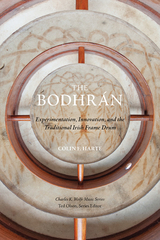
In the past fifty years, the bodhrán, or traditional Irish circular frame drum, has undergone a rapid evolution in development. Traditionally, it is a shallow drum ranging from ten to twenty-six inches in diameter, covered in goatskin on the top (or drum) side and open on the other. Unlike any other instrument associated with Irish traditional music, the bodhrán has been dramatically altered by its confrontation with modern instrument design, performance techniques, and musical practice. Colin Harte’s The Bodhrán: Experimentation, Innovation, and the Traditional Irish Frame Drum presents a definitive history of the bodhrán from its early origins to its present-day resurgence in Irish American folk music.
The bodhrán has global roots and bears many characteristics of older drums from northern Africa and the Middle East. Harte picks up on these basic similarities and embarks on an engaging tour of the instrument’s historical and organological development, gradual evolution in playing styles, and more recent history of performative practice. Drawing from a host of interviews over a multi-year period with participants primarily located in Europe and North America, this work provides a platform for multiple perspectives regarding the bodhrán. Participants include bodhrán makers, professional performers, educators, amateur musicians, historians, and enthusiasts. Growing out of rich ethnographic interviews, this book serves as the definitive reference for understanding and navigating the developments in the bodhrán’s history, organology, performance practices, and repertoire.
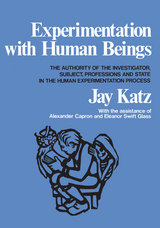
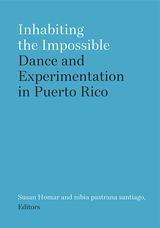
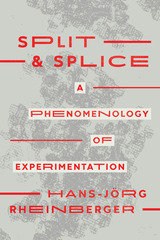
The experiment has long been seen as a test bed for theory, but in Split and Splice, Hans-Jörg Rheinberger makes the case, instead, for treating experimentation as a creative practice. His latest book provides an innovative look at the experimental protocols and connections that have made the life sciences so productive.
Delving into the materiality of the experiment, the first part of the book assesses traces, models, grafting, and note-taking—the conditions that give experiments structure and make discovery possible. The second section widens its focus from micro-level laboratory processes to the temporal, spatial, and narrative links between experimental systems. Rheinberger narrates with accessible examples, most of which are drawn from molecular biology, including from the author’s laboratory notebooks from his years researching ribosomes.
A critical hit when it was released in Germany, Split and Splice describes a method that involves irregular results and hit-or-miss connections—not analysis, not synthesis, but the splitting and splicing that form a scientific experiment. Building on Rheinberger’s earlier writing about science and epistemology, this book is a major achievement by one of today’s most influential theorists of scientific practice.
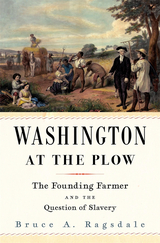
Winner of the George Washington Prize
A fresh, original look at George Washington as an innovative land manager whose singular passion for farming would unexpectedly lead him to reject slavery.
George Washington spent more of his working life farming than he did at war or in political office. For over forty years, he devoted himself to the improvement of agriculture, which he saw as the means by which the American people would attain the “respectability & importance which we ought to hold in the world.”
Washington at the Plow depicts the “first farmer of America” as a leading practitioner of the New Husbandry, a transatlantic movement that spearheaded advancements in crop rotation. A tireless experimentalist, Washington pulled up his tobacco and switched to wheat production, leading the way for the rest of the country. He filled his library with the latest agricultural treatises and pioneered land-management techniques that he hoped would guide small farmers, strengthen agrarian society, and ensure the prosperity of the nation.
Slavery was a key part of Washington’s pursuits. He saw enslaved field workers and artisans as means of agricultural development and tried repeatedly to adapt slave labor to new kinds of farming. To this end, he devised an original and exacting system of slave supervision. But Washington eventually found that forced labor could not achieve the productivity he desired. His inability to reconcile ideals of scientific farming and rural order with race-based slavery led him to reconsider the traditional foundations of the Virginia plantation. As Bruce Ragsdale shows, it was the inefficacy of chattel slavery, as much as moral revulsion at the practice, that informed Washington’s famous decision to free his slaves after his death.
READERS
Browse our collection.
PUBLISHERS
See BiblioVault's publisher services.
STUDENT SERVICES
Files for college accessibility offices.
UChicago Accessibility Resources
home | accessibility | search | about | contact us
BiblioVault ® 2001 - 2024
The University of Chicago Press









